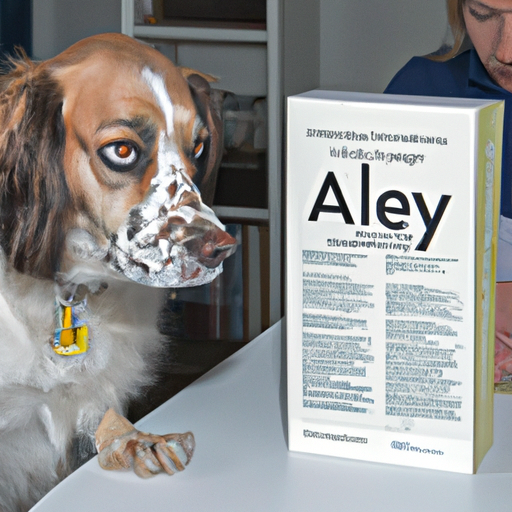Know the Symptoms
It’s crucial to understand the signs before you can treat allergies in your beloved pet. Dogs express allergies differently than humans. Whereas you might experience sneezing, a dog’s allergy symptoms typically manifest on their skin. Here are some common symptoms:
- Persistent itching
- Red, moist, or scabbed skin
- Frequent ear infections
- Chewing on paws
- Constant licking
Noticing these signs early can help you take the necessary steps to ensure your dog’s comfort and health.
Understand Common Allergens
Just like us, dogs can be allergic to a wide array of substances. Some of the most common allergens include:
- Pollen from grasses, trees, and weeds
- Dust mites
- Mold spores
- Feathers
- Certain Foods
- Flea and tick bites
By identifying the allergen causing your dog discomfort, you can take the right steps to reduce their exposure to it.
Implement a Diet Change
If your vet suspects a food allergy, they will likely recommend an elimination diet. This involves feeding your dog a protein and carbohydrate source they have never eaten before.
| Week | Protein | Carbohydrate |
|---|---|---|
| 1 | Duck | Sweet Potato |
| 2 | Rabbit | Quinoa |
| 3 | Salmon | Brown Rice |
Remember, patience is key here. It can take up to 12 weeks to see a change in symptoms.
Medication and Treatment Options
Several medicinal treatments can help alleviate your dog’s allergy symptoms. These include:
- Antihistamines like Benadryl
- Steroids or corticosteroids
- Topical creams, sprays, or shampoos
- Omega-3 fatty acid supplements
Always consult with your vet before starting any new medications.
Regularly Clean Your Dog’s Environment
Regularly cleaning your dog’s environment can significantly reduce their exposure to allergens. Wash their bedding weekly, vacuum regularly, and consider using an air purifier to remove allergens from the air.
FAQs
Q: Can dogs outgrow allergies?
A: Unfortunately, dogs do not typically outgrow allergies. In many cases, they can actually get worse with age.
Q: Can allergies in dogs be cured?
A: There’s no cure for allergies, but symptoms can be managed with the right treatment and preventive measures.
Q: Is it safe to give antihistamines to my dog without consulting a vet?
A: It’s always best to consult with your vet before starting any new medications. They can provide the right dosage and monitor for any adverse effects.



